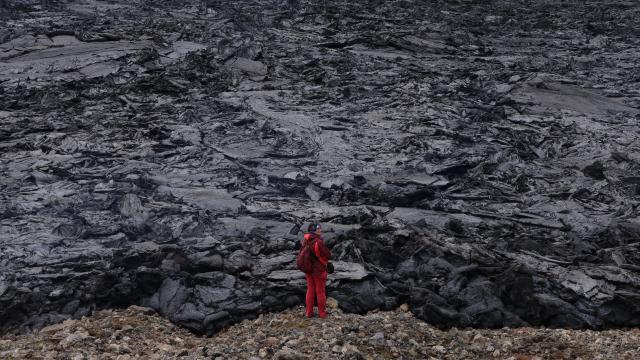There is a “significant likelihood” that the Icelandic volcano Fagradalsfjall will erupt “in the coming days,” according to the country’s meteorological office. The volcanic activity is primarily occurring in the island’s southwest, northeast of the fishing town of Grindavík.
About 900 earthquakes have been detected in the volcano’s southwestern region since midnight local time, according to an Icelandic Meteorological Office release. The tremors were detected as deep as 3.1 miles (5 kilometres) beneath the surface, near the now-evacuated town of Grindavík. The greatest upwelling of magma was detected about 2.17 miles (3.5 km) north-northeast of Grindavík, the release noted. The meteorological office is also posting live updates on the potential eruption on X, formerly known as Twitter.
Popular tourist attractions like Iceland’s Blue Lagoon have temporarily closed out of an abundance of caution; the lagoon and its associated facilities will be closed through November 16 at least. Last Friday, the meteorological office informed Iceland’s Civil Protection Agency that the forming magma tunnel could reach Grindavík, prompting the town’s evacuation. “There is no immediate danger,” a Civil Protection Agency release stated. “The evacuation is primarily preventive with the safety of all Grindavík residents as the principal aim.”
“It is clear that we are dealing with events that we Icelanders have not experienced before, at least not since the eruption in Vestmannaeyjar,” the release added, referencing a 1973 eruption that destroyed a town. “We faced that together, we will face this together and we will not lose heart.”
Iceland is no stranger to volcanic activity; the island nation has 32 active volcanoes and Fagradalsfjall (pronounced FOW-gra-dals-fyat-l) erupted just last year. Perhaps the most famous recent eruption in Iceland is that of the volcano Eyjafjallajökull, which in 2010 ejected massive plumes of ash and smoke, scrambling the travel plans of thousands of people.
When Fagradalsfjall erupted last year, three tourists were injured while trying to photograph the event; one individual broke their ankle and Iceland’s Department of Civil Protection and Emergency Management did not identify the other injuries.
Fagradalsjfall’s eruption in 2021 marked the end of 800 years of dormancy. The volcano also erupted between July 10, 2023, and August 5, 2023, but the current state of emergency in the region reflects the seriousness of the recent earthquakes, and the eruption they may precede.
